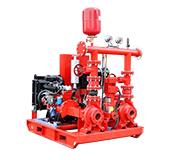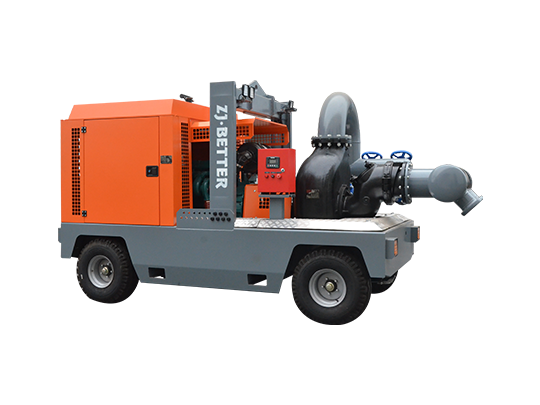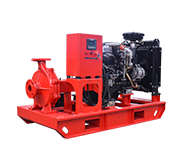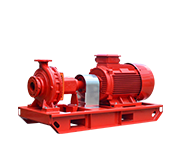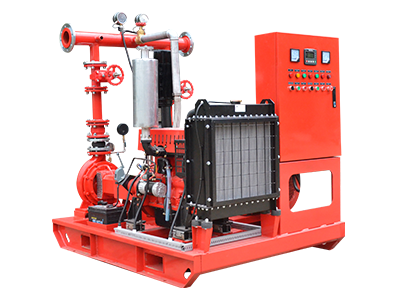- Fire Pump System
-
- UL-Listed Fire Pump SetEDJ End Suction Fire Pump SetEDJ Fire Pump SetEJ Small Flow Fire Pump SetFire Pump PackagesContainerized fire pump setDiesel Fire Pump SetED Small fire pump setElectric Jockey Fire Pump SetFire Pump Set with Jockey PumpFire Pump SystemSplit Case Fire Pump SetMutistage EDJ Fire Pump SetDiesel Fire Pump Set with Jockey PumpFire Fighting Pump SystemElectric Diesel Jockey Fire Pump SetFire Fighting Pump Set with Jockey PumpSmall Capacity Electric Fire Pump SetDJ Fire Pump Set with Jockey PumpEJ Fire Pump SetED Fire Pump Set (Electric+Diesel pump)Diesel Engine Fire Pump SetDiesel Fire Jockey PumpSmall Fire Pump SetEDJ Fire Pump SystemFire Water Pump SetFire Pump AssemblyDJ Small Flow Fire Pump SetCummins Engine Fire Pump Set
- Mobile Pump Unit
-
- Split Case Series Mobile Pump TruckSelf Priming Series Mobile Pump TruckCentrifugal diesel driven dewatering pumps open frame trailerFlow-mixing Mobile Pump TruckFlow-mixing Mobile Pump TruckManure Pump TruckP12 modle mobile Pump truckP10 Modle Mobile Pump Truck1000m³Self Priming Series Mobile Pump TruckLarge Flow Non-Clogging Mobile Fire Pump TrailerTrailer Mounted Fire PumpFire Emergency Mobile Pump TruckDiesel Engine Emergency Mobile Trailer Pump
- Diesel Fire Pump
-
- UL Listed Diesel End Suction Fire PumpXBC-S Diesel Split Case Fire PumpXBC-IS Diesel End Suction Fire PumpXBC-D Diesel Multistage Fire PumpVertical Turbine Diesel Engine Fire PumpDiesel Engine Single-Stage Centrifugal PumpXBC-IS Diesel End Suction Fire Fighting PumpXBC-S Diesel Engine Split Case Fire PumpDiesel Engine End Suction Fire PumpXBC-IS Diesel End Suction Fire PumpsZWC Diesel Engine Self Priming Pump for IrrigationDiesel Engine End Suction Fire Fighting PumpXBC-S Heat Exchange Diesel End Suction Fire PumpXBC-XA Diesel Engine End Suction Fire PumpXBC-IS Diesel Engine Fire PumpDiesel Engine End Suction Fire PumpXBC-IS Diesel Engine End Suction Fire PumpXBC-ISO Diesel Fire Fighting PumpPortable Fire PumpFire Booster Pump

Email: zjbetter@119pump.com
Tel:+86 15336708022(Gloria) +86 13306708055 (Ivy) +86 13357006058 (Serena) +86 13357022877 (Wendy) +86 17757009882(Kate)
Fax:0086-570-3010238
-
Fire Pump Package Set vs. Modular Fire Pump Systems: Which Offers Better Flexibility?
Fire Pump Package Set: These are pre-assembled and fully integrated, offering easy installation and reduced on-site work. They are efficient for quick deployment but offer limited customization once built. Modular Fire Pump Systems: These are more flexible as they can be assembled on-site, allowing for customization and scalability. They may be better suited for projects where adaptability is key or where space and layout need specific configurations.
View more +
-
Do Fire Pumps Require Backup Power Generators?
Yes, fire pumps often require backup power generators, especially in systems using electric pumps. NFPA 20 requires a secondary power source in case of primary power failure. Diesel engine fire pumps provide their own backup since they don't rely on the electrical grid, but for electric pumps, a backup generator is crucial to ensure the fire protection system stays operational during power outages.
View more +
-
Are Diesel Engine Fire Pumps More Fuel-Efficient Than Electric Pumps?
Diesel engine fire pumps tend to be less fuel-efficient than electric pumps. Electric pumps, when connected to a reliable power grid, offer consistent efficiency without the need for refueling or maintenance for fuel systems. Diesel engines are often used for their independence from the electrical grid, especially in emergency situations, but they consume more fuel and require regular refueling and maintenance checks. Fuel efficiency depends on pump size, system design, and specific application needs.
View more +
-
What Are the Most Common Causes of Fire Pump Failure?
Lack of regular maintenance is the most common cause, followed by: Air pockets in the suction line. Clogged strainers or obstructions in the piping. Electrical failures in the motor or controller (for electric pumps). Fuel supply issues in diesel fire pumps. Water supply problems (e.g., inadequate water source or low pressure).
View more +
-
Which Fire Pump Materials Are Best for Corrosive Environments?
Stainless steel and bronze are typically the best materials for fire pumps used in corrosive environments due to their high resistance to rust, chemicals, and saltwater. Cast iron is also commonly used, but additional coatings like epoxy may be needed to enhance corrosion resistance. Pumps installed in environments exposed to seawater or chemicals often require non-ferrous materials like bronze impellers and stainless steel shafts for better longevity.
View more +
-
What is Fire Pump Commissioning?
Fire pump commissioning is the process of testing and verifying that a newly installed fire pump system functions according to design specifications and meets safety regulations. This ensures the pump will perform effectively in case of a fire emergency.
View more +
-
6 Signs You Need to Replace Your Fire Pump
Reduced Pressure or Flow If the fire pump is not maintaining adequate water pressure or flow rate, it may not be performing optimally. A drop in pressure could be due to wear and tear on the pump's internal components like impellers or seals. Excessive Noise or Vibrations Unusual sounds or excessive vibrations are signs of mechanical issues, such as misalignment or worn bearings. If these noises become more frequent, it may be time for a replacement to avoid further damage. Frequent Overheating Fire pumps should operate within a specific temperature range. Continuous overheating could indicate motor or bearing problems. Ignoring this can lead to more extensive damage, so replacement might be the best option. Age of the Pump Even with proper maintenance, fire pumps have a life
View more +
-
Are There Energy-Efficient Fire Pump Options?
Yes, there are energy-efficient fire pump options available that can help reduce operational costs while maintaining performance: Variable Frequency Drives (VFDs): One of the most popular energy-efficient solutions is the use of VFDs in electric fire pumps. VFDs adjust the motor's speed based on demand, providing only the pressure needed and reducing energy consumption when full pump capacity is not required. High-Efficiency Motors: Fire pumps with premium efficiency motors can reduce energy consumption by lowering electrical losses, especially in systems where the pump runs frequently for testing or dual-purpose water supply systems. Optimized System Design: Careful planning and design of the overall fire protection system can ensure that the pump operates at peak efficiency. This i
View more +
-
What Are the Advantages of Pre-Packaged Fire Pump Sets?
Pre-packaged fire pump sets offer several key benefits: Streamlined Installation: Pre-packaged sets come pre-assembled with pumps, motors, controllers, and piping already integrated. This reduces the complexity of on-site installation, saving time and labor costs. Factory-Tested for Reliability: These sets are fully tested by the manufacturer before delivery, ensuring that all components work together properly, and reducing the risk of issues during installation or operation. Compact Design: Pre-packaged units are space-efficient and are often designed to fit into tighter spaces. This can be especially useful for retrofits or buildings with limited space for fire pump rooms. Code Compliance: Manufacturers typically design pre-packaged sets to meet the requirements of specific standar
View more +
-
Do You Need a Fire Pump for High-Rise Buildings?
Yes, high-rise buildings generally require fire pumps. In tall buildings, water pressure decreases as height increases, so the municipal supply often cannot provide enough pressure to reach the upper floors. Fire pumps are used to boost water pressure, ensuring that fire protection systems like sprinklers and standpipes can function effectively at all levels of the building.
View more +
-
Are Fire Pumps Required for Sprinkler Systems?
Not all sprinkler systems require fire pumps, but they are necessary when the water supply cannot provide adequate pressure or flow for the sprinkler system. This is often the case in high-rise buildings, large complexes, or locations with low water pressure from the municipal supply. If the system pressure is insufficient to meet the NFPA 13 standard for automatic sprinkler systems, a fire pump is required.
View more +
-
What to Expect During Fire Pump Installation?
During the installation of a fire pump, expect the following steps: Site Preparation: Ensuring the area where the pump will be installed is properly prepared, including a stable foundation. Pump Positioning: The pump, motor (electric or diesel), and controller are set into position, typically mounted on a base frame. Piping and Electrical Work: Connecting the fire pump to the water supply and completing the electrical work for controllers, alarms, and sensors. Testing and Commissioning: The system will undergo testing, including flow tests and pressure readings, to ensure it operates efficiently and meets design specifications. Certification and Handover: The system is certified by the appropriate local authorities, and the facility's management team is trained on proper usage and
View more +
-
How to Ensure Your Fire Pump Meets Local Codes?
To ensure that your fire pump meets local codes, follow these steps: Consult Local Fire Codes: Every region has its own fire protection regulations, so ensure your fire pump complies with the local fire codes and building regulations. Adhere to NFPA 20 Standards: This is a global standard for fire pump installation, ensuring the equipment and system are properly designed. Work with Certified Installers: Using certified installers who understand local requirements ensures that the fire pump is set up to meet all legal standards. Request an Inspection: Have the fire protection system inspected by local authorities or a certified third-party inspector to confirm code compliance.
View more +
-
Why Choose a Manufacturer with UL Listing?
Choosing a UL-listed fire pump manufacturer ensures that the product has been rigorously tested and meets the highest safety and performance standards. UL (Underwriters Laboratories) is a globally recognized certification body, and fire pumps with this listing guarantee compliance with critical safety standards like NFPA 20. UL listing is especially important for insurers, regulatory bodies, and building owners, as it reduces the risk of equipment failure during emergencies.
View more +
-
Why Is Noise Level Important in Fire Pump Selection?
Work environment considerations: Fire pumps located in or near occupied areas need to be as quiet as possible to minimize disruption, especially in hospitals, offices, or residential buildings. Compliance with regulations: Some buildings, like those near residential zones, have noise level restrictions that must be followed. Impact on building occupants: Excessive noise can cause discomfort, distraction, or safety concerns, making lower-noise pumps preferable for certain applications.
View more +
-
Which Factors Impact Fire Pump Pricing?
Pump type: Diesel pumps tend to be more expensive than electric pumps due to additional components like engines, exhaust systems, and fuel tanks. Size and capacity: Larger pumps with higher flow rates and pressures will cost more. Certifications: Pumps that meet UL/FM certifications or specific local standards tend to be pricier due to the rigorous testing involved. Materials: Fire pumps made from corrosion-resistant materials, such as stainless steel, will cost more than those made from standard materials. Installation complexity: Custom installations, especially in challenging environments, can increase the overall cost.
View more +
-
Everything You Need to Know About Fire Pump Layouts
Pump room design: Fire pumps should be housed in a dedicated, easily accessible room that provides protection from environmental factors like flooding or freezing. Clearances: Adequate space for servicing and maintenance must be maintained around the pump, as required by NFPA 20. Electrical and mechanical considerations: For electric pumps, power sources must be redundant, while diesel pumps need adequate ventilation and fuel storage. Piping layout: Ensure the suction and discharge piping are properly sized and laid out to avoid pressure drops or cavitation. Valves and accessories: Install control valves, relief valves, and other accessories in line with industry standards for safety and performance.
View more +
-
6 Steps to Choosing the Right Fire Pump
Determine water supply: Assess the available water source, including its flow rate and pressure. Identify the building’s fire suppression needs: Calculate the required flow rate and pressure for sprinklers, hydrants, or other systems. Check regulatory standards: Ensure the pump complies with local and international standards, such as NFPA 20 and UL/FM listings. Select the pump type: Choose between electric or diesel, considering reliability, power availability, and maintenance factors. Evaluate the required pump capacity: Based on building height, system demand, and water source pressure. Consider installation and maintenance: Evaluate the complexity of installation, accessibility for maintenance, and cost factors.
View more +
-
Fire Pump Package Sets: The Complete Solution?
Fire pump package sets are designed as turnkey solutions, offering everything you need to quickly and easily install a fire protection system: Components included: The package set typically includes a fire pump (electric or diesel), jockey pump, control panels, and related accessories. Advantages: These sets are factory-assembled, tested, and certified to meet standards like UL and NFPA, minimizing installation time and reducing potential errors. Customizability: Package sets can be tailored to specific building needs, ensuring compatibility with the rest of the fire protection system.
View more +
-
Do Fire Pumps Require Special Training?
Yes, fire pumps require specialized training, especially for: Installation and commissioning: Technicians need to understand the proper installation methods to ensure compliance with codes. Operation: Understanding the control panel, activation mechanisms, and routine start-up procedures is essential. Maintenance: Regular testing and maintenance are necessary to keep fire pumps operational, requiring knowledge of NFPA 25 standards for testing and maintenance of fire protection systems. Safety protocols: Operators must be trained to manage emergencies and troubleshoot the system safely.
View more +
-
Are There Specialized Fire Pumps for Specific Industries?
Yes, there are specialized fire pumps for different industries: Marine fire pumps: Designed for use on ships and offshore platforms, where water sources and space are limited. Petrochemical plants: Explosion-proof fire pumps are used to handle hazardous chemicals and maintain high safety standards. Mining industry: High-pressure fire pumps for underground environments where fire risks are higher. Power plants: These require robust fire pump systems to protect essential operations from fire risks.
View more +
-
What are the Most Common Fire Pump Applications?
Fire pumps are essential components of fire protection systems in various settings, including: Commercial buildings: High-rise offices, shopping malls, and large structures where sprinklers need extra water pressure. Industrial facilities: Manufacturing plants, refineries, and warehouses require reliable fire suppression due to the presence of flammable materials. Residential complexes: Large apartment buildings often require fire pumps for sprinkler systems. Hospitals: Health care facilities need fire pumps to ensure adequate water supply for fire suppression systems. Airports and transportation hubs: To protect large spaces with heavy foot traffic and potential fire hazards.
View more +
-
Why Invest in High-Quality Fire Pumps?
Investing in high-quality fire pumps ensures reliability, as they are designed to perform effectively in emergencies. They often come with advanced safety features that meet regulatory standards, minimizing risks. While initial costs may be higher, their durability and efficiency lead to long-term savings on maintenance and potential damages. Ultimately, high-quality pumps provide peace of mind, knowing you're protected against fire hazards.
View more +
-
5 Reasons to Choose UL Listed Fire Pumps
Safety Assurance: Complies with rigorous safety standards. Quality Guarantee: High manufacturing and performance quality. Insurance Benefits: Often required for insurance coverage. Reliability: Proven performance in emergencies. Regulatory Compliance: Meets local and national fire codes.
View more +
-
Fire Pump vs. Standard Pumps: Key Differences Explained
Purpose: Fire pumps are specifically designed for firefighting and high-pressure applications, while standard pumps are used for general fluid transfer. Performance: Fire pumps deliver higher pressures and flow rates. Standards: Fire pumps must comply with stringent safety regulations (e.g., UL listed, NFPA standards).
View more +

